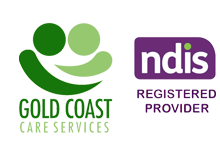For many workplaces, there is usually someone who has a disability working. In an ideal world, they have been hired based on their ability (this is not always the case), but the road to full acceptance and an equal workplace is often more complex than one may initially think.
The challenges for people with disabilities comes in the form of accidental discrimination or inequality. Many employers – despite having good intentions – often fail to either be considerate of the needs of staff or accidentally discriminate against them.
A recent story emerged of an employer who asked their staff member to remove a bag containing medication from their work station and became the target of a discrimination lawsuit. These types of situations are reminders that employers don’t always handle things in the right way and it’s usually the disabled people who suffer for it. In this situation, the employer could have asked discreetly what was in the bag or simply not said anything if it wasn’t directly impacting the productivity of the worker.
At other times, problems arise in the workplace when a company is trying hard to be inclusive but accidentally goes the other way and becomes overbearing or devalues the disabled person’s right to self-sufficiency. Naturally, many of us would be very upset to think that we had taken someone’s independence from them inadvertently, but it is a very common problem that affects a lot of disabled people.
As an NDIS provider Gold Coast, we are very aware of the importance of meeting disabled people halfway on a lot of issues and developing solutions that work for them. One thing that we feel a lot of employers don’t actually do when trying to develop policies and procedures for working with disabled people is actually consult with disabled people about what kind of actions are suitable.
As an idea, that seems rather strange, but it does have a degree of truth to it. Ultimately, it’s important for employers to build a workplace that is designed for disabled people. Without the input of people who live with disabilities, this is very difficult to do, because it’s the perspective of someone without a disability which makes the difference and they just don’t have that. They can begin to guess the challenges that will be faced by disabled people, but they can’t create solutions with that same confidence that they would be able to bring as someone without a disability to a workplace.
The modern workplace needs a fresh take to deal with accidental discrimination or inequality, and that perspective will undoubtedly come from people who have disabilities. They’re uniquely qualified to consult on policies and guidelines in a way others aren’t. It’s the responsibility of companies to change the way that they work to be as inclusive as possible. In many cases, this means consulting with the right people for the job. Working with disabled people may be the answer to changing modern workplaces for the better.
